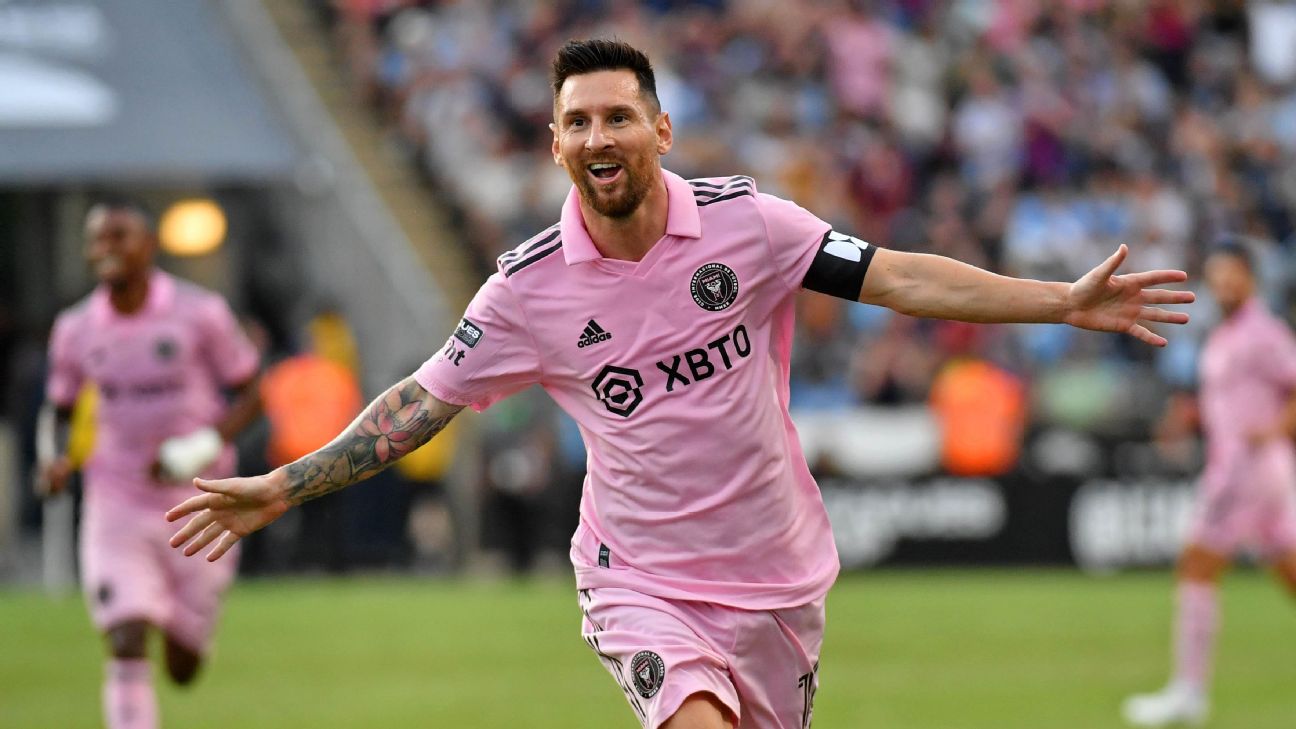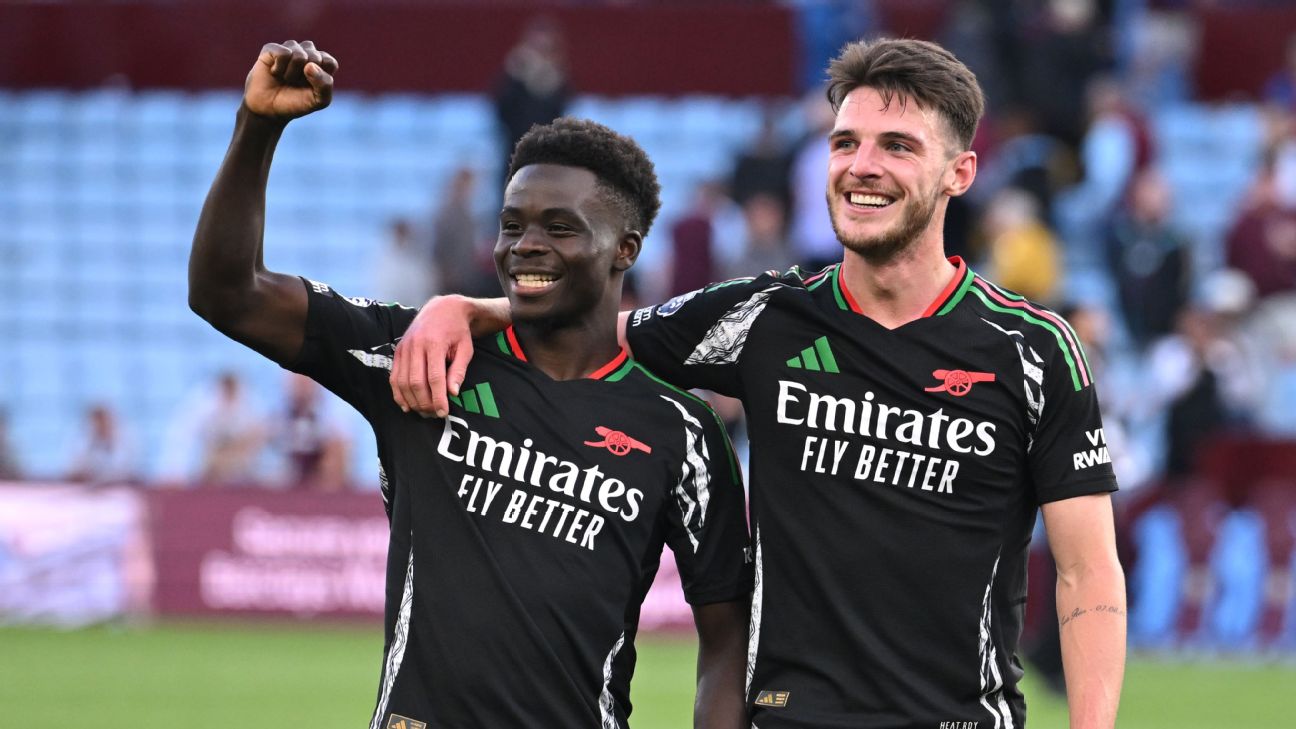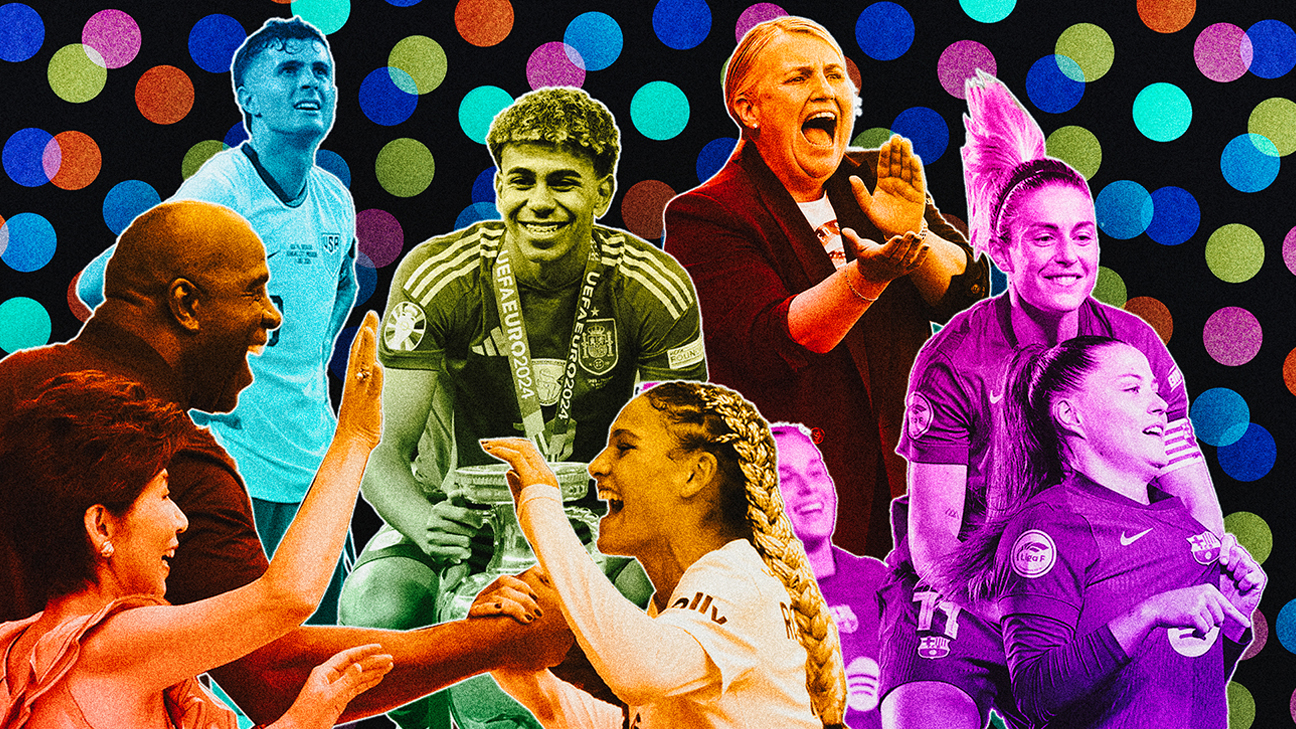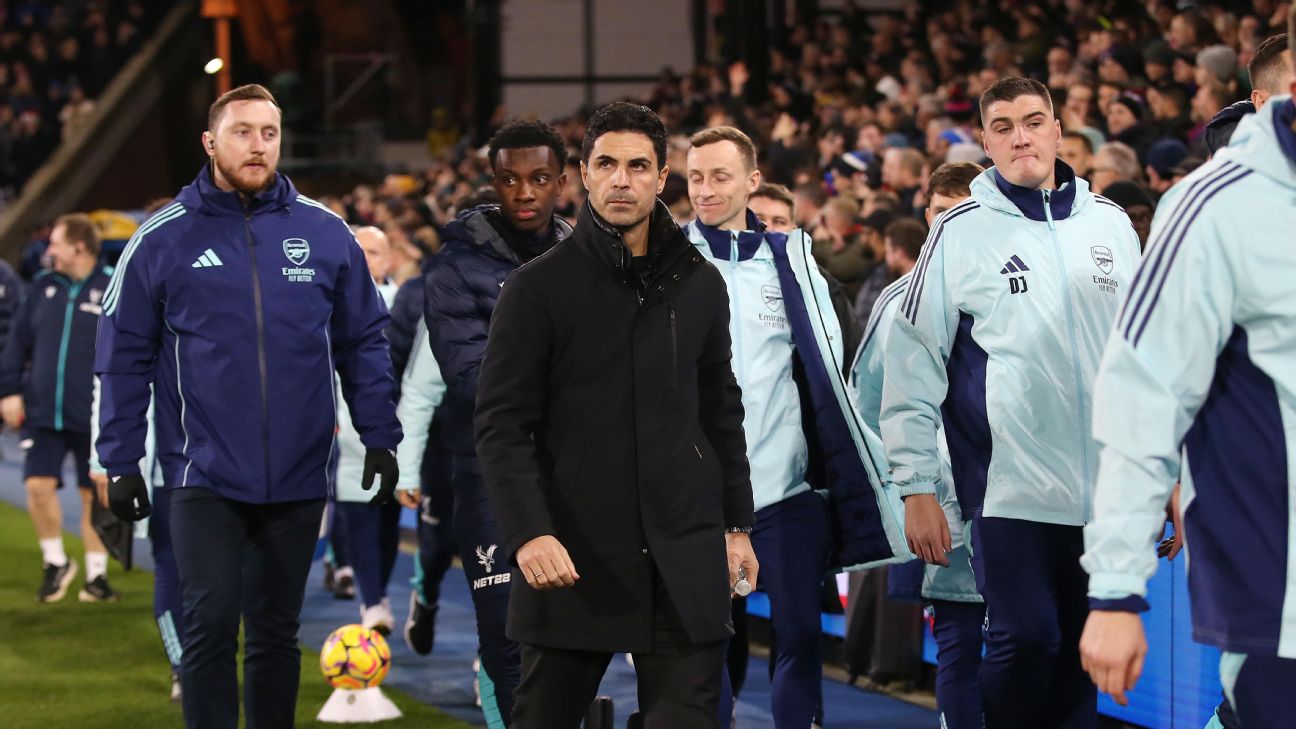There are all kinds of ways to define the best player in the world — and we’ve made multiple attempts at it on these webpages. Despite the impossibility of objectively measuring and then valuing everything that happens on a soccer field, there’s still plenty of insight to be gleaned from the process.
So, rather than changing how we’re defining “best,” what if we changed who we’re defining as the best? Might that reveal anything new about the current state of the soccer landscape? In an effort to find out, let’s try to identify the best player in the world at every age — from 16 through 36.
There’s no clear criteria for the best here but we’ll be using a combination of how much better that player is than peers at his position and how valuable that position is. In other words, the third-best attacker would get the nod over the top goalkeeper.
And as a guide, we’ll be occasionally referring to a stat called “Contextualized Plus-Minus,” or CPM, which was created by the analyst Edvin Tran Hoac. The statistic looks at a combination of individual on-ball statistics and how teams perform with these players on and off the field, then it estimates the impact that player would have on overall team performance. That approach, ideally, captures both the measurable impact of a player from things like shots and passes and also the not-yet-measurable impact he might have on winning.
As the line from British statistician George Box goes, “All models are wrong, some are useful.” CPM is certainly useful. So let’s get to it.
16: Lamine Yamal, forward, Barcelona
He turned 16 years old in mid-July and over his past 600-ish minutes in LaLiga and Champions League, he ranks in the 98th percentile for non-penalty expected goals plus expected assists per 90 minutes and in the 98th percentile for touches inside the penalty area among wingers across the Big Five leagues.
If you simply play at all — terribly, incredibly, whatever — for a team like Barcelona at 16, you’re likely headed for big things. Yamal, instead, is already doing big things. I can’t believe I’m already saying this with any degree of confidence, but he might be the next Mohamed Salah.
17: Warren Zaire-Emery, midfielder, Paris Saint-Germain
Earlier this year, he became the youngest player to start a Champions League game — in the round of 16 against Bayern Munich. This season, he’s played the third-most minutes of any PSG outfield player. He hasn’t quite affected matches like Yamal has — not a ton of incisive passing or ball-winning — but he never loses the ball. Everything else seems likely to come with time. He was born in 2006, a year after the popular video platform YouTube was created.
Per CPM, the highest-rated 17-year-old is Lenny Yoro, the Lille center back who has already played more than 1,200 professional minutes. Good for France. I was getting worried there for a minute. It’s been a couple of weeks since they’ve had a promising young center back.
18: Evan Ferguson, forward, Brighton
Since the start of last season, Ferguson ranks ninth in non-penalty xG+xA (that is, expected goals plus expected assists) per 90 minutes among all Premier League players with at least 1,200 minutes.
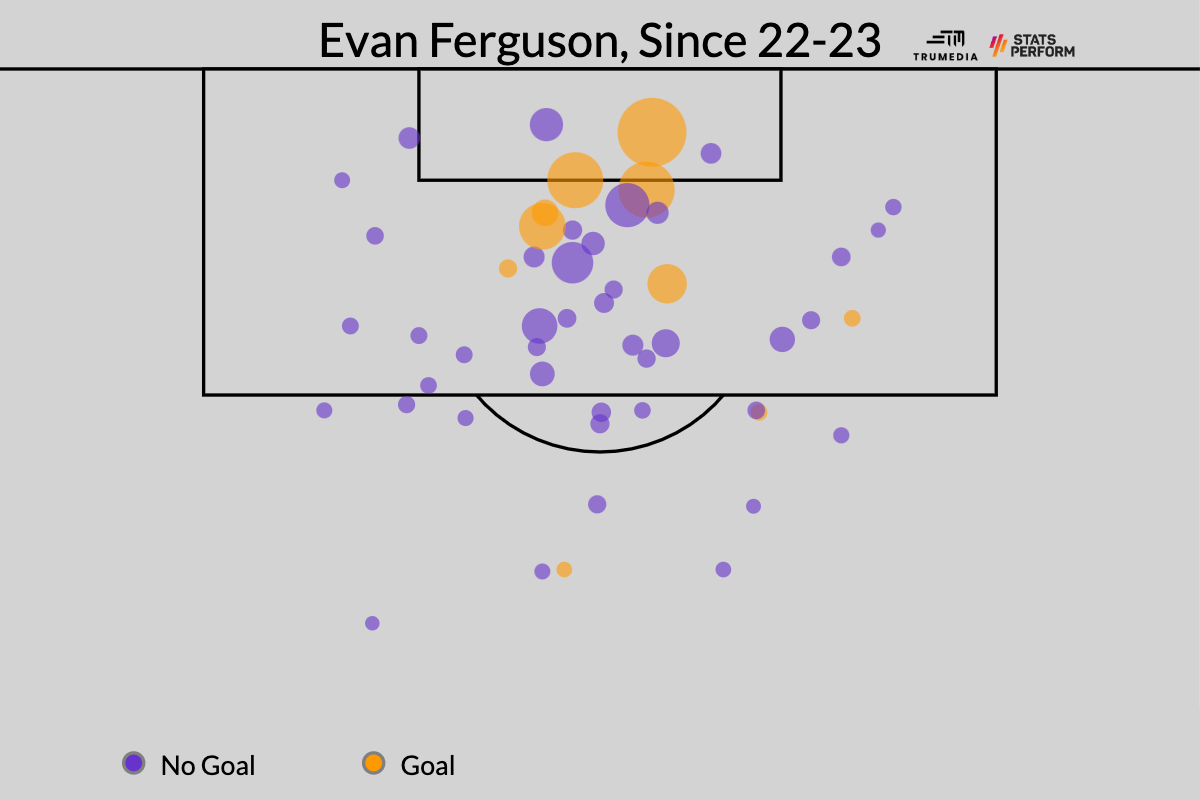
The average age of the eight players ahead of him is north of 27, and he won’t be that old until 2031. Don’t be shocked if this guy eventually challenges for a Ballon d’Or.
19: Gavi, midfielder, Barcelona
Although it might seem like it, this wasn’t an easy selection given the other 19-year-olds who are already performing at a high level.
Barcelona’s Alejandro Balde has played more than 3,000 minutes as a pro. Romeo Lavia just spent a whole season as a starter at maybe the most demanding position (defensive midfielder) in the most demanding league (Premier League) in the world. Benfica’s António Silva and Atalanta’s Giorgio Scalvini have both racked up a ton of minutes at a position (center back) where players peak later into their 20s. And Julio Enciso looked like another budding star at Brighton before he got hurt at the beginning of the season.
CPM favors Silva, but rather than overcomplicating matters, we’re just going with the guy who’s now in his third year as a near full-time starter at Barcelona.
20: Jude Bellingham, midfielder, Real Madrid
Pedri in Barcelona might have an argument were he able to stay healthy, but Bellingham is staking a claim as the best player in the world, let alone the best player at his age. Eight games into his Real Madrid career, he’s scored more LaLiga goals than Cristiano Ronaldo had at the same stage. Bellingham, of course, is still only 20 and technically plays as a midfielder.
Sure, he’s basically a No. 10 at this point, but he’s still doing a little bit of everything else — ball-winning, passing (leading the team in through balls!), off-ball running — in addition to scoring an absurd number of goals.
📊 Top scorers for teams in Europe’s big five leagues this season (with % of their touches that come in the opp. box):
11 – Guirassy (19%)
10 – Lautaro (18%)
9 – Kane (16%)
8 – Bellingham (8%)
8 – Haaland (33%)
8 – Mbappé (20%)
8 – Boniface (22%)
8 – Wind (11%) pic.twitter.com/8Hb036OJLQ— La Pausa (@lapausa_pod) October 4, 2023
On top of all the clear value he provides on the field, he also makes it really easy to build out the rest of the team. He wasn’t expected to be a goal-scoring No. 10 before the season, but Real Madrid need him to be a goal-scoring No. 10, so he is. Rather than chasing players in specific positions, Madrid can sign whoever they want — and Bellingham will fill in the gaps.
21: Josko Gvardiol, center back, Manchester City
It’s funny how these things shake out. At 20, there’s Pedri, Bellingham, Jamal Musiala, Florian Wirtz, Xavi Simons and Eduardo Camavinga. At 21, it’s Gvardiol — and not much else. Moisés Caicedo was an expensive player, but we’ve still really only seen one season of high-level performance from him.
Gvardiol was starting for a Champions League team at 19, and now he’s starting for the best team in the world. Doing all of that is rare enough, but doing it at center back almost never happens.
22: Bukayo Saka, forward, Arsenal
Let’s remember some guys who are only 22 and already among the best players in the world: Rodrygo, Saka, Enzo Fernández, Kvicha Kvaratshkelia, Gabriel Martinelli, Dominik Szoboszlai, Alphonso Davies. For whatever reason, both the 20 and 22 age groups are stacked, while (at least for now) the age 21 group is lacking. I have no cute theories to explain that — it’s just random, man.
Anyway, I come down to Enzo and Saka for this slot. Unlike some of the previously mentioned players, Saka has never quite put up superstar attacking numbers. His career-best non-penalty goals+assists-per-90-minutes mark was last season’s 0.65, which ranked 14th in the Premier League. Enzo, meanwhile, has basically been lights out since he entered the league. How that shows up statistically: elite forward passing, elite pass completion and great ball-winning. That’s the whole game — and that’s why CPM rates him first.
Saka, though, is second, and when you adjust for minutes played — looking at how much value they provided in the past compared to their forward-looking projection — he moves into first. There is, however, a question over whether he’s played too much:
Has Saka played ‘too much’ football? pic.twitter.com/LfXoRcgZci
— Aurel Nazmiu (@AurelNz) October 10, 2023
Let’s hope not. Saka’s performance has steadily performed year after year, and even without the elite production getting awarded to his name, there’s clearly a massive amount of gravity to his game. The entire opposition has to shift toward his side of the field, which opens up so much space for everyone else.
23: Erling Haaland, forward, Manchester City
Next!
24. Kylian Mbappé, forward, Paris Saint-Germain
Next!
25: Trent Alexander-Arnold, fullback, Liverpool
He’s been the engine of both ball progression and creativity for one of the five best teams in the world for the past half a decade. We already have proof that you can win every trophy with him doing those things — and that was all before he even entered his prime.
These are all his passes worth at least 0.05 expected assists:
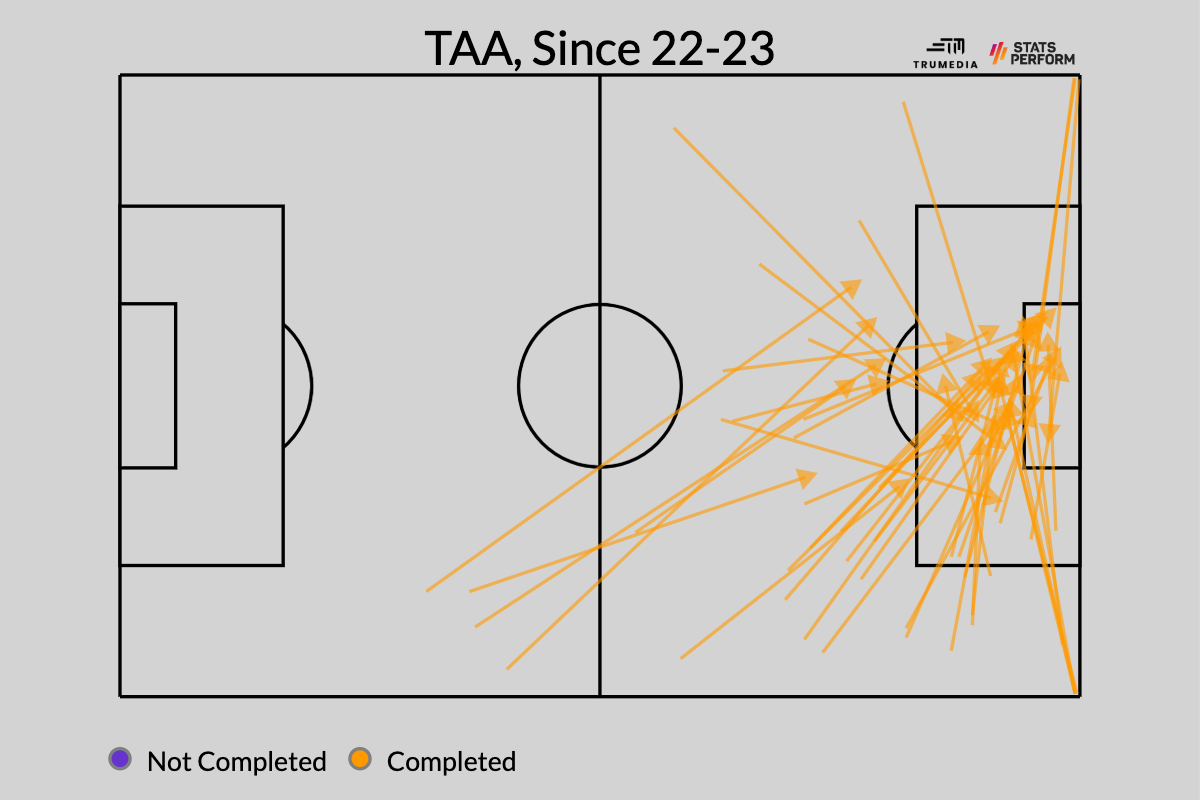
While there was plenty of consternation about his defensive ability during the last campaign, Liverpool went on their late-season tear as soon as they decided to adopt the new strategy of “just let TAA touch the ball as many times as possible.”
The other contenders here are Newcastle’s Bruno Guimarães and Real Madrid’s Federico Valverde, but neither one can match the longevity and consistency of TAA’s impact or the high-end of his impact, when he just decides games on his own. He’s the leader, among 25-year-olds, in CPM — but he also turned 25 just a couple of days ago. If I wrote this article last month, he might not have even been mentioned.
26: Kim Min-Jae, center back, Bayern Munich
This is a tricky one, but we’re going to go with the only 26-year-old who could reasonably be considered the best in the world at his position.
Frenkie De Jong and Nicolò Barella are both fantastic modern eights, who do a little bit of everything on the field but have their sliders turned up toward an attacking impact around the box. They just both feel like secondary players, rather than transformative ones.
The case against Kim is that he’s only on his second season in the Big Five leagues. Are we overvaluing one lights out season in Napoli and are we crediting him too much for simply being on the same team as Victor Osimhen and Kvaratshkelia? Perhaps, but we’re opting for the potential that he’ll be one of the best CBs in the world for the next five years over the more known outcomes we’d get from Barella and De Jong. CPM puts De Jong first, Kim second and Barella third.
27: Rodri, midfielder, Manchester City
I really wanted to throw Stuttgart’s Serhou Guirassy on here, and I’m not totally sure that I shouldn’t throw Stuttgart’s Serhou Guirassy on here. Through seven games, the guy has more goals than any player … in the history of the freaking Bundesliga:
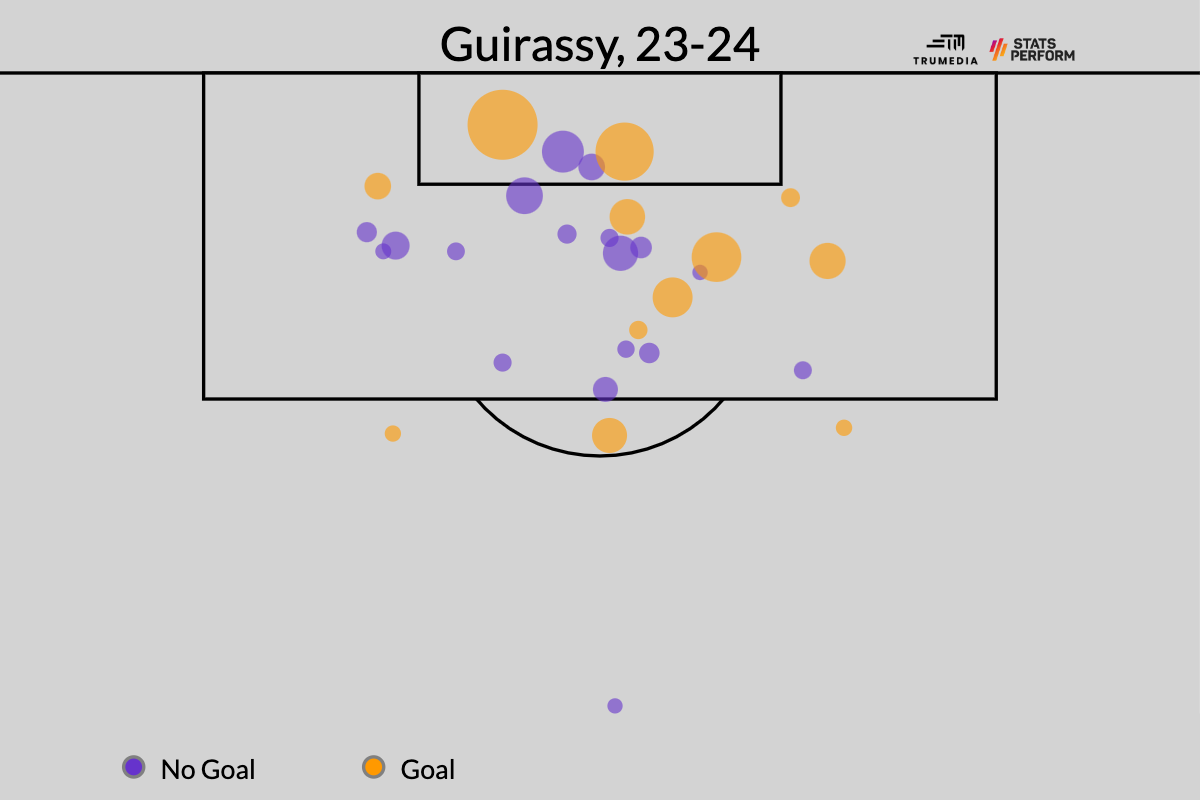
He’s not going to keep scoring over 40% of his shots, but he’s still leading all players across the Big Five leagues in expected goals plus expected assists — despite the Bundesliga playing at least one fewer game than the four other leagues. This came from out of nowhere, but he’s been so dominant that he now ranks second in CPM among all 27-year-olds.
First, though, is Rodri. If some all-knowing entity were able to create an all-in-one statistic that perfectly calculated and then valued every little movement that happened on a soccer field, with and without the ball, I’m not sure that Rodri wouldn’t come out rated No. 1.
28: Joshua Kimmich, midfielder, Bayern Munich
To sum it up, simply: Kimmich has led the Bundesliga in progressive passes in each of the four previous full seasons, and he’s leading the league again this year.
Bayern manager Thomas Tuchel might not view him as a true holding midfielder, but there might not be anyone in the world who’s better at moving the ball. And Kimmich does it over and over and over. Per CPM, he’s the fifth-most valuable player in the world.
29: Bruno Fernandes, attacking midfielder, Manchester United
Although his teammates have only converted them into nine goals, Bruno’s passes over the past season-plus have added up to 13.8 expected assists — fourth-most of any player across the Big Five leagues. He’s attempted 114 shots — only 13 other players have taken more. He’s completed 167 passes into the penalty area — only three players have made more. And the combined xG value of every uninterrupted possession he’s been involved in adds up to 45.13 — more than all but four players.
In other words, if Manchester United ever move the ball or generate a chance on goal, it’s likely because of Fernandes. While there are questions about how he’d scale on a better team where he wouldn’t get as much of the ball, it’s scary to think of where United might be if it weren’t for him.
30: Harry Kane, forward, Bayern Munich
According to CPM, the most impactful 30-year-old in the world is Napoli’s Giovanni Di Lorenzo. He’s a fantastic fullback and one of the truly underrated players in European soccer. He’s the kind of player who’s good at everything, but not in any kind of obvious way. That adds up to a sort of hidden, outsized impact on winning. Whatever situation he’s in — against a packed-in defense, forced to defend deep, competing in an end-to-end track meet — he’s able to contribute something valuable. He’s always helping his team win, and he rarely misses any matches — that’s what CPM is picking up on.
That said, Harry Kane has scored 30 non-penalty goals since the start of last season. Only Haaland and Mbappe have more. He’s the best 30-year-old in the world.
31: Mohamed Salah, forward, Liverpool
This comes down to two players on the same team: Salah and Alisson.
The gap between Alisson and the next best goalkeeper in the world might be bigger than at any other position. He’s just so good at every aspect of goalkeeping, and with Liverpool’s style of play, he’s constantly being asked to save some of the toughest shots faced by any keeper in Europe. By CPM, he’s the best player in the world at this age.
Instead, though, we’re going with Salah, who might be the best Premier League attacker not named Thierry Henry.
NPG/A per 90 in the Premier League
What stands out the most to you? pic.twitter.com/ciobXG5bD0
— IG (@InvisibleGoals) October 12, 2023
While Salah’s non-penalty-xG-per-90 rate this season is the lowest it’s been in his Liverpool career (0.35), he’s more than doubled his career xA rate at Liverpool (0.56). He’s leading the Premier League in expected assists (4.2) this season.
As Salah has aged deeper into his 30s, has he found a way to tweak his game to maintain his world-class impact? This season, the answer is yes.
32: Kevin De Bruyne, attacking midfielder, Manchester City
He’s played 22 minutes this season, and yet he still leads all players in Europe with 14.29 expected assists since the start of last season.
Going back to 1995, a group of European journalists have been selecting a Team of the Month. The most selections are Lionel Messi’s 88. Second most: Cristiano Ronaldo with 51. Third: Roberto Carlos with 34. And then tied for fourth with 31 are Dani Alves and De Bruyne.
Whether or not he ever regains his previous form whenever he returns from his hamstring injury, KDB should go down as one of the greatest midfielders to play the sport.
33: Kieran Trippier, fullback, Newcastle
Since the start of last season, Tripper has completed 272 passes into the opposition penalty area. No one else has completed more than 186.
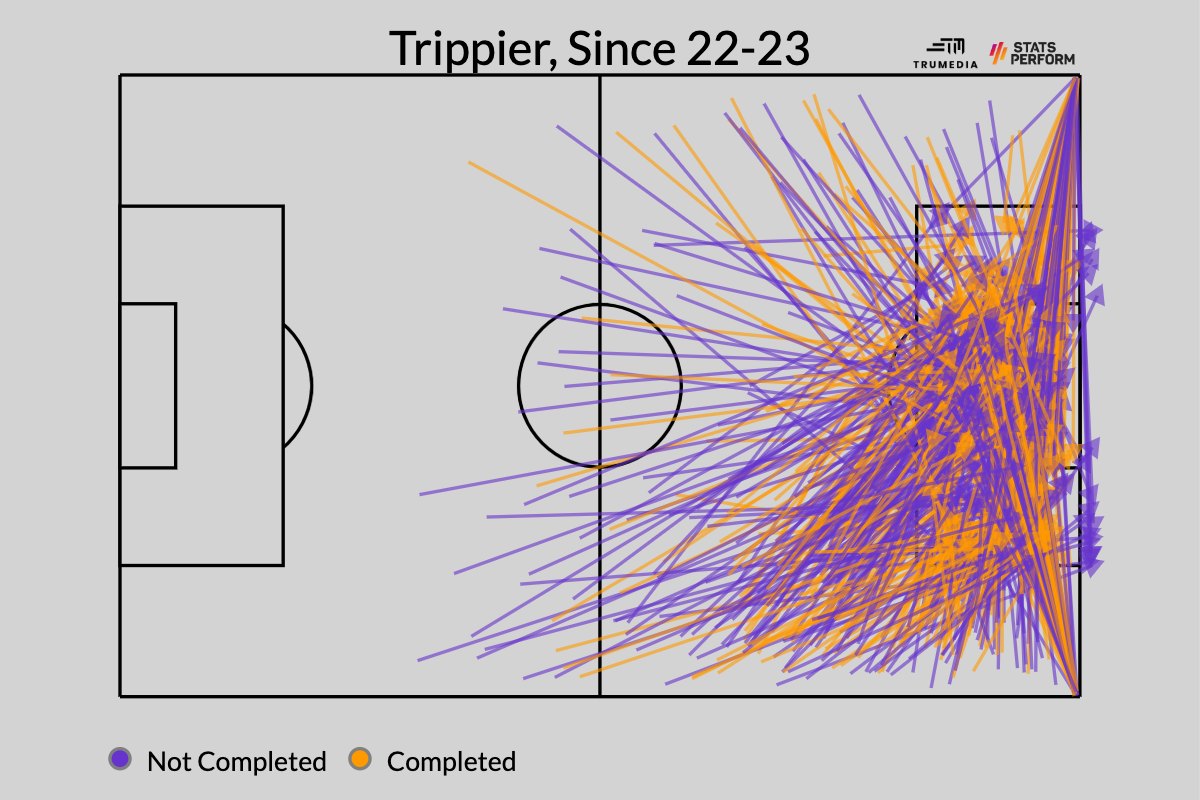
So, Newcastle just probably are an elite team at this point. Yes, they’ve lost three matches in the league already, but they smoked Paris Saint-Germain and they’ve played arguably the toughest schedule in the Premier League. Despite that, they still have the second-best non-penalty xG differential at even strength in England.
When you look at Newcastle’s roster — still composed of a bunch of players from the team that was nearly relegated — it’s really difficult to understand how that can be. But once you accept that Trippier might be one of the best players in the world — better than anyone else at moving the ball into the most dangerous area of the field — then you at least get somewhere toward an explanation. Per CPM, he’s one of the five most valuable players in the world.
Obligatory Toni Kroos mention: He, too, remains fantastic.
34: Dani Parejo, midfielder, Villarreal
Mats Hummels and Thomas Müller were also in contention here, but neither one plays enough minutes. Among players currently 34 or older, only two other performers have registered more domestic minutes than Parejo’s 4,003 since the start of last season.
His defensive impact has steadily declined — 3.66 tackles+interceptions per 90 at his peak, 1.52 this season — but he still rates above the 80th percentile among all midfielders for passes attempted, passes completed and progressive passes.
35: Robert Lewandowski, forward, Barcelona
Since 2010, Lewandowski has scored 299 non-penalty goals in the Big Five leagues. That’s the most among all players in the non-Messi-or-Ronaldo division, and that gap is only going to grow. The guys directly behind him — Luis Suárez (234) and Karim Benzema (205) — seem to have left European soccer for good. Since turning 30, Lewandowski has never scored fewer than 23 non-penalty goals in a season, and he’s on a similar production pace again this season. By dominating so deep into his 30s, he’s probably established himself as the best center forward of his generation.
36: Lionel Messi, forward, Inter Miami
He hasn’t played a game on the continent since the beginning of June, and he’s still leading all of Europe in expected assists since the start of last season. Were you expecting anyone else?
